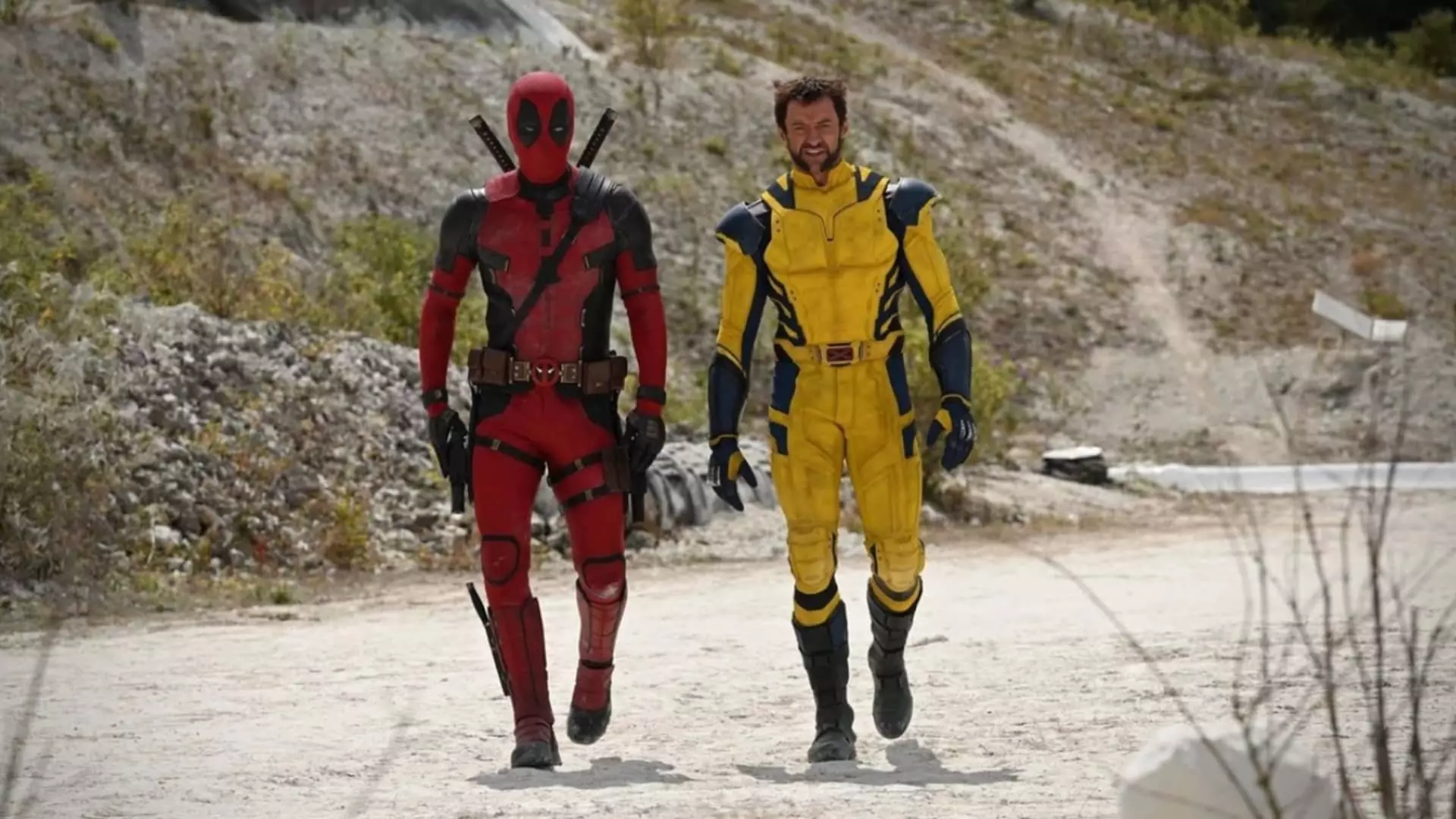This weekend marks a significant milestone for the Marvel Cinematic Universe (MCU) as Ryan Reynolds reprises his role as the irreverent antihero in “Deadpool and Wolverine.” This film not only adds a tantalizing new chapter to the franchise but also brings an R-rating into the Disney fold, indicating a deviation from the family-friendly reputation associated with the MCU. Operating under the expectation of drawing in between $160 million and $180 million in its opening weekend at the domestic box office, the film has generated immense enthusiasm, already breaking ticket pre-sale records for 2024.
The anticipation around “Deadpool and Wolverine” can be attributed largely to the franchise’s historical success. The first “Deadpool” movie (2016) set a precedent with a $132.4 million opening, making it the most successful R-rated opener of all time. Its sequel, “Deadpool 2,” while slightly underperforming with a $125.5 million debut, still confirmed the character’s profound appeal. Creatively, these films have understood their audience’s appetite for sharp humor coupled with over-the-top action, setting a standard that fans now expect from any new release bearing the Deadpool name.
Analysts and theater executives like Mike Bowers and Ellis Jacob are predicting that “Deadpool and Wolverine” will not only surpass previous R-rated box office records but will also secure its place as the highest domestic opening of 2024. For context, Disney and Pixar’s “Inside Out 2” currently holds that title with a $154.2 million gross, raising the stakes for the new entry. Given the unique blend of humor and action that defines Deadpool’s brand, the expectation isn’t just that this film will succeed; rather, many foresee it creating waves in how R-rated films are perceived within the broader cinematic landscape.
The R-rating offers filmmakers a broader palette for storytelling, allowing for edgier content and more mature themes. As cinema-goers are drawn in by the promise of humor and a strong narrative, the success of “Deadpool and Wolverine” can serve as an affirmation of the appetite for such films. Indeed, Bowers suggests that repeat viewings will become commonplace, citing the film’s myriad of jokes and Easter eggs that audiences will want to experience multiple times. If nothing else, this suggests an excited audience base ready to decode the unique elements packed into the film.
The buzz surrounding “Deadpool and Wolverine” has been fueled by a carefully curated marketing strategy that limits spoilers and provides tantalizing glimpses of what’s to come. Disney’s choice to maintain secrecy around the film’s plot elements, alongside relatively few press screenings prior to the release, has created an atmosphere of intrigue and excitement. Fans of both Deadpool and Wolverine are actively avoiding spoilers in the week leading up to the premiere, showcasing a culture of anticipation where curiosity drives ticket sales.
Compounding this is the mix of premium screening options available to audiences. Higher ticket prices for formats like IMAX and Dolby are inviting more moviegoers to pre-book in order to secure the best viewing experience. The strategic collaboration between Marvel and theaters extending to licensed merchandise—like collectible popcorn buckets and themed drink containers—adds another layer of engagement. Audiences love the idea of commemorating their cinematic experiences with tangible memorabilia, incentivizing more foot traffic at cinemas and boosting concession sales.
Amidst these fervent box office expectations, “Deadpool and Wolverine” is crucial for the MCU. Following a strategy of fewer releases and ongoing criticism regarding recent films’ performance, Disney is under pressure to realign its cinematic universe and regain momentum. As noted by industry commentator Shawn Robbins, this film might represent a shift in focus back to character-driven narratives that engage both ardent fans and casual viewers.
Importantly, the chemistry between Reynolds and Hugh Jackman—who is stepping back into the role of Wolverine—further enhances the film’s appeal. Their longstanding camaraderie, punctuated by social media exchanges and playful banter, has built a shared history that resonates with fans. This connection not only heightens expectations but also cultivates a sense of nostalgia that draws audiences into theaters for the shared experience.
“Deadpool and Wolverine” stands poised to be a transformative release not only for the franchise but for the Marvel Cinematic Universe at large. Through a clever blend of marketing, fan engagement, and the promise of comedic brilliance, the film is hard to ignore. As the hype builds and box office records are primed to fall, its success may redefine the landscape for future R-rated Marvel films and reinvigorate the MCU’s approach to storytelling moving forward. In doing so, it could very well pave the way for a new era of superhero cinema that embraces complexity and laughter in equal measure.


Leave a Reply